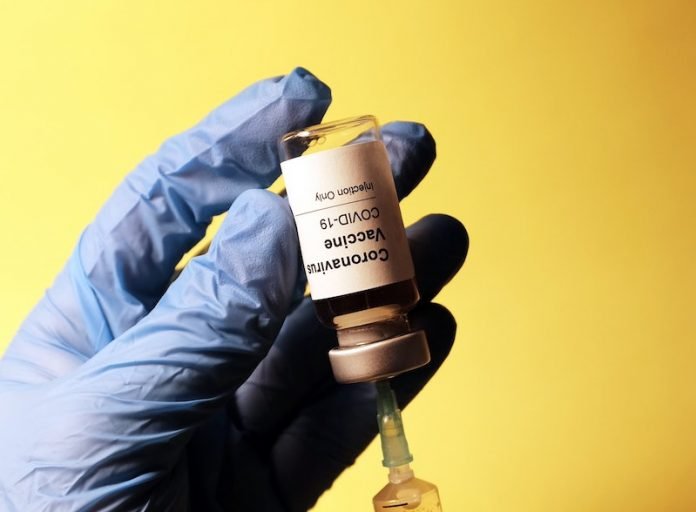
In a new study from the University of California San Diego, researchers found that the effectiveness of both the Pfizer and Moderna mRNA COVID-19 vaccines significantly waned over time.
They reported that from March through June 2021 vaccine effectiveness against symptomatic infection was estimated to exceed 90%; by July, however, it had fallen to approximately 65%.
The findings suggest that confronted by the delta variant, vaccine effectiveness for the mildly symptomatic disease was considerably lower and waned six to eight months after completing vaccination.
In December 2020, workers at UC San Diego Health, like the population overall, began experiencing a surge of SARS-CoV-2 infections, the virus that causes COVID-19.
The situation improved significantly after UC San Diego Health began to inoculate employees using the Pfizer and Moderna vaccines.
Concomitant with increased vaccination coverage was a decline between March and June in the number of workers reporting at least one symptom of COVID-19 and a positive PCR test. That number declined to fewer than 30 employees per month.
In July 2021, however, cases among this highly vaccinated population began to rise again, coincident with the emerging dominance of the delta variant in San Diego and the ending of California’s masking mandate on June 15.
By July, 125 workers had been diagnosed with SARS-CoV-2 and unlike in previous months when approximately 20% of these cases involved vaccinated workers, the percentage had risen to 75%.
Notably, the vaccines still provide significant protection from severe infection outcomes, such as hospitalization and death.
Among the UC San Diego Health employee cases documented, no hospitalizations were reported in vaccinated individuals and only one among unvaccinated persons.
The team says unlike what was experienced with other variants, with the delta variant parents are frequently getting infected by their young children, ages 5 to 11.
Unvaccinated people are seven times more likely to test positive for COVID-19 than those who are fully vaccinated.
More importantly, while children rarely need medical attention, unvaccinated adults are 32 times more likely to require hospitalization compared to those who are fully vaccinated.
Vaccine effectiveness was linked to the passage of time. For workers diagnosed in July, those who became fully vaccinated in January and February had higher infection rates than those vaccinated later in March through May.
The infection rate among unvaccinated persons has remained consistently higher than for any vaccinated group, although the difference in rates between the two groups has decreased over time.
The dramatic change in vaccine effectiveness from June to July is likely due to a combination of factors.
It’s the emergence of the delta variant and waning immunity over time, compounded by the end of broad masking requirements and the resulting greater exposure risk throughout the community.
The findings underscore the importance of rapidly reinstating key interventions, such as indoor masking and intensive testing strategies, plus continuing efforts to boost vaccination rates.
If you care about COVID vaccines, please read studies about why second dose of COVID-19 vaccine shouldn’t be skipped and findings of new COVID vaccine guidance for the obese.
For more information about COVID and your health, please see recent studies about COVID-19 vaccine protection is lower and slower in people with this health problem and results showing that new inhaled COVID-19 vaccine may prevent disease and transmission.
The study is published in the New England Journal of Medicine. One author of the study is Francesca Torriani, MD.
Copyright © 2021 Knowridge Science Report. All rights reserved.



